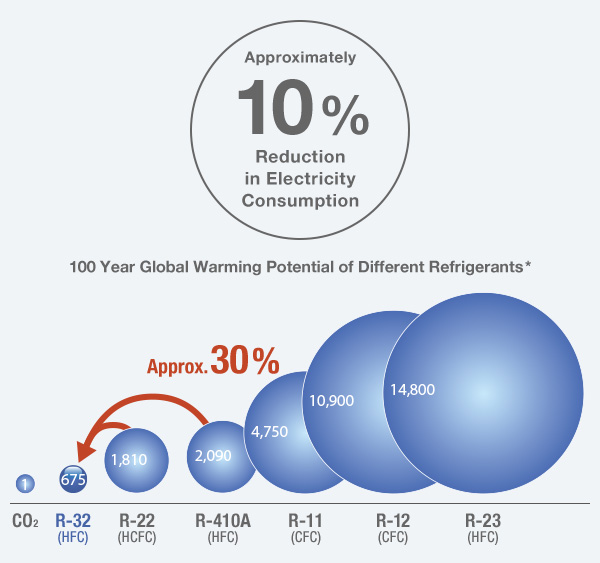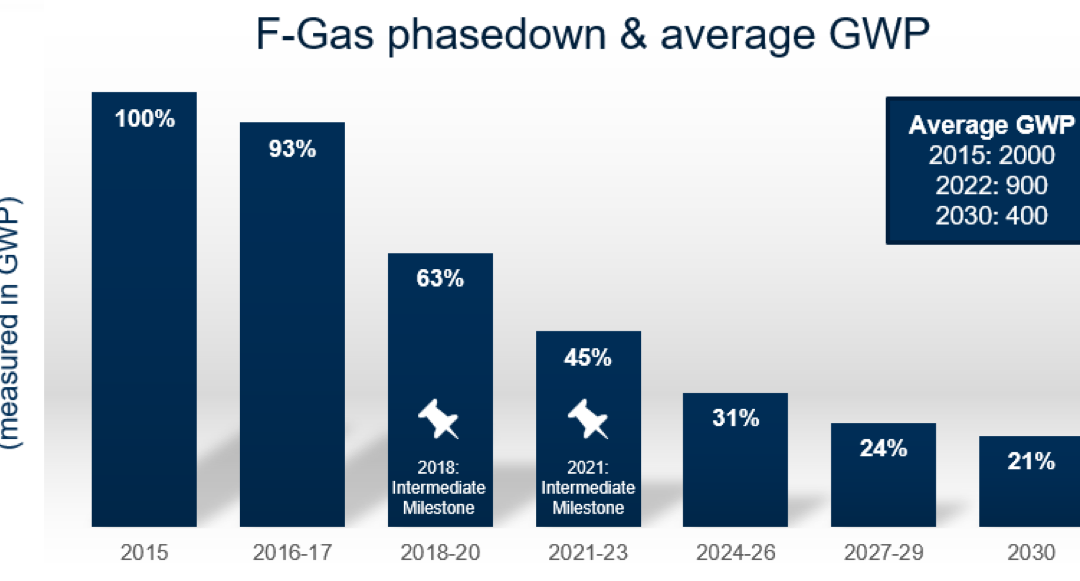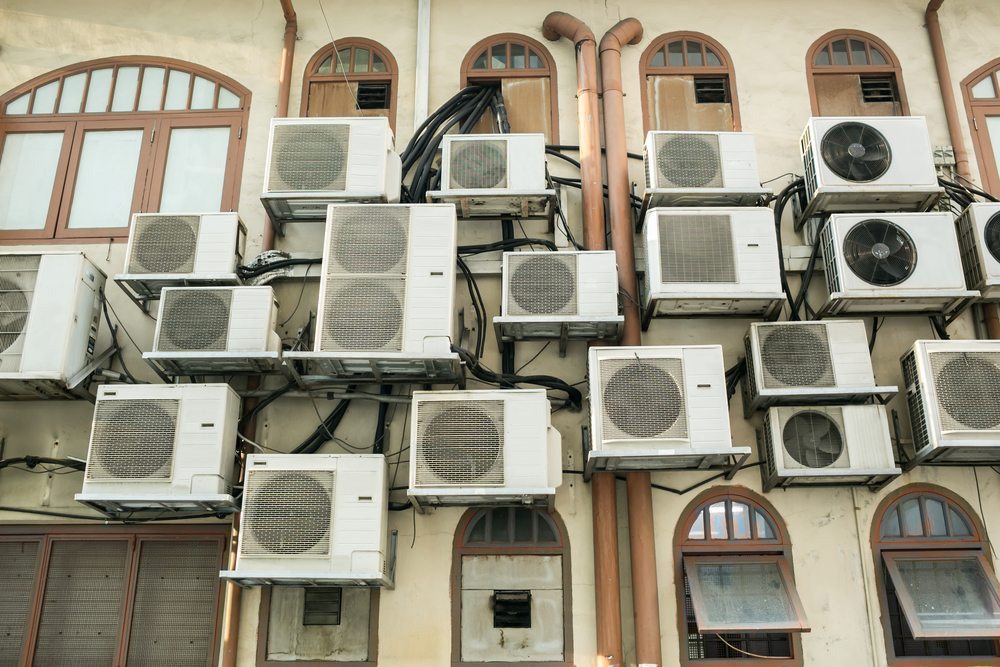
R-32 is the new generation of refrigerant. It efficiently circulates between indoor and outdoor units, while actively reducing electricity consumption up to as much as 10% compared to air conditioners using existing R-22 refrigerant. It is far more energy efficient than other refrigerants on the market and has a global warming potential which is two-thirds lower than comparable products.
Its benefits include a lower GWP of around 675 – making it as much as two-thirds lower than comparable products, also with R-32 it is an ideal alternative for the next generation of air conditioning equipment. Following the introduction in Europe of the F-Gas Regulations and at the start of January 2015, HFC refrigerants have been phased down completely.
With its lower Global Warming Potential, R32 has been designed to be in line with future legislation to reduce the environmental impact of air conditioning and refrigeration equipment.
By 2025, all refrigerant gas with a GWP greater than 750 will be phased put. R32 has a GWP of 675. Putting this into context, the most commonly used refrigerant R410A has a GWP of 2088, three times the GWP of R32.
Whilst the phase out of current refrigerants that don’t meet GWP requirements will be gradual, manufacturers have been quick to embrace the performance characteristics of R32 sooner rather than later. This is why they have added R32 operating systems to their product range – with many at the same prices as those using the R410A refrigerants.


Currently the most used refrigerant in air conditioning is currently R410A.
As a blended refrigerant, R410A has been the choice of refrigerant for reducing damage to the ozone layer.
However, it still has considerable global warming potential, and its GWP remains an issue.
R32, has an ozone depletion potential of zero, but also has around a third of the GWP of R410A.
According to global air conditioning manufacturer Daikin, if you converted all R410A air conditioners to R32, the impact from HFCs in 2030 would be reduced by around 19% of CO2, or 800 million tons.
R32 air conditioners are more environmentally friendly than R410A air conditioners, both in emissions and their energy efficiency.
G2AC Ltd are an established firm based in Scotland offering commercial and domestic air conditioning services and have been providing highly qualified,
experienced engineering to our customers for nearly 10 years.
G2AC Ltd, Aspect Court,
116 West Regent Street, Glasgow, G2 2QD
Monday – Friday 08:30 am – 16:30pm
Saturday – Sunday (Closed)